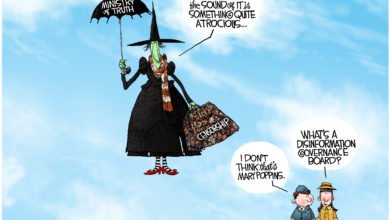U.S. and Pakistan – We Need Them, but Do They Need Us?
While everyone has been running about talking about the Trayvon Martin case, SCOTUS on Obamacare, and the various endorsements for the Romney campaign, our leaders have been trying to haggle out a deal with Pakistan. Given a few problems last year – killing Osama bin Laden on Pakistani soil, and the deaths of 24 Pakistani soldiers from a fire-fight with U.S. soldiers for two – the chances that the U.S. will get what it wants from Pakistan are not looking very good.

In order to understand this situation clearly, it is wise to consider the history of Pakistan. Since gaining independence in 1947, Pakistan has been tossed from quasi-democratic governments to military regimes and back again no less than seven times. In all of that time, only one leader managed to remain in power for an entire term. Stability is not in this country’s vocabulary, when it comes to leadership. While the current government has been relatively better than previous ones in some respects, it is currently coming under fire in part because of its relationship with the U.S. When the natives get restless in Pakistan, that generally leads to a regime change, so their leaders would be wise to seriously consider the ramifications of playing nice with the U.S.
Pakistan closed a needed route for supplies into Afghanistan, and is currently requesting public apologies for the deaths of the 24 Pakistani soldiers last November. The U.S. is standing by its investigation of the incident, that claims the guilt lies on both sides, so it is unlikely an apology is forthcoming. Additionally, the U.S. wants the ability to continue launching drone attacks over Pakistani soil – the Pakistanis not only want them to stop, but also contend that they are causing “mental trauma” to their civilians.
Beyond Pakistan’s problems with the U.S. lie its problems with India. While the U.S. may be the country that is most likely to be able to cause the most damage on Pakistani soil if provoked, India is the country Pakistan seems to fear more. Unlike the U.S., China is the most likely candidate on the world stage to provide Pakistan with the protection it desires from India. And even better in Pakistani eyes, is the fact that such an alliance would not have strings attached.
So what does this all mean for the Obama administration and NATO? While leaders from both the U.S. and Pakistan are publicly stating that they are working hard to mend their differences, the reality is that the U.S. needs Pakistan more than Pakistan needs the U.S. Anti-American sentiment is growing on the streets of Pakistan, and the current government is under scrutiny for corruption. There is building pressure calling for early elections, and based on the history of that nation, that is the herald of regime change. The “war on terror” is becoming increasingly unpopular, not only here, but over there as well. And the U.S. is increasingly being perceived as a destabilizing force in the region by the Pakistanis.
But don’t worry. If there was anything going really wrong in the AFPAK theatre, Obama would come out and tell us right away. He certainly wouldn’t let such news get buried under headlines about a shooting in Florida, or any other problems he might be having, with say his landmark legislation coming under scrutiny by SCOTUS, right?




